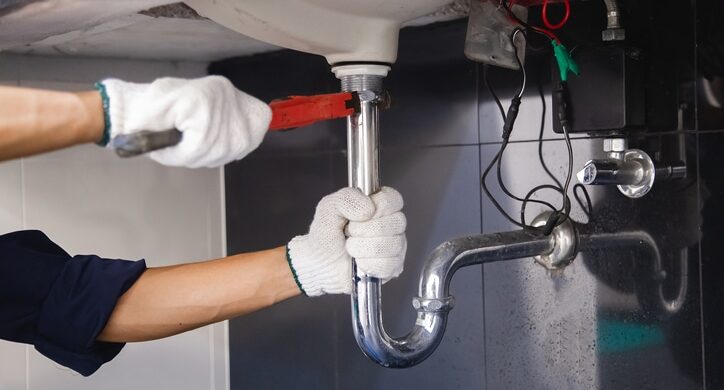The Importance of Licensing in Plumbing: What Homeowners Need to Know

Plumbing is an essential component of every home, responsible for delivering clean water and disposing of waste efficiently. When facing plumbing issues or undertaking plumbing projects, homeowners must prioritize hiring Licensed Plumbers. Licensing plays a crucial role in ensuring the competence, professionalism, and legal compliance of plumbers. In this comprehensive article, we’ll explore the importance of licensing in plumbing and what homeowners need to know to make informed decisions when seeking plumbing services.
Understanding Plumbing Licensing
Before delving into the significance of licensing, it’s essential to understand what plumbing licensing entails.
Licensing Requirements
Plumbing licensing requirements vary by state and locality, but they generally involve a combination of education, training, and examination. Plumbers must complete a formal apprenticeship program or vocational training, followed by passing a licensing exam to demonstrate their competence and qualifications. Additionally, licensed plumbers are required to participate in continuing education to stay updated on industry advancements and regulations.
Types of Licenses
There are different types of plumbing licenses, including journeyman plumber licenses and master plumber licenses. Journeyman plumbers have completed the necessary training and passed the licensing exam to work independently under the supervision of a master plumber. Master plumbers have achieved the highest level of licensing and can work without supervision, oversee plumbing projects, and train apprentices.
The Importance of Licensing in Plumbing
Ensuring Competence and Expertise
Licensing ensures that plumbers possess the necessary knowledge, skills, and training to perform plumbing work effectively and safely. Licensed plumbers undergo rigorous education and training to understand plumbing principles, codes, regulations, and safety protocols. They are equipped with the expertise to tackle a wide range of plumbing tasks, from simple repairs to complex installations, with precision and efficiency.
Compliance with Building Codes
Licensed plumbers are familiar with local building codes and regulations governing plumbing installations and repairs. They ensure that all work is performed in compliance with these codes, ensuring safety and legal compliance. Compliance with building codes is essential for protecting homeowners, preventing safety hazards, and avoiding fines or penalties associated with code violations.
Protecting Homeowners
Hiring licensed plumbers provides homeowners with peace of mind knowing that their plumbing work is being handled by competent professionals. Licensed plumbers prioritize quality workmanship, reliability, and professionalism in their services. They adhere to industry standards and best practices, ensuring that plumbing projects are completed accurately, efficiently, and to the highest standards of quality.
Accountability and Liability Protection
Licensed plumbers are held to higher standards of accountability and professionalism compared to unlicensed individuals. They are required to adhere to a code of ethics and maintain a professional demeanor in their interactions with clients. Licensing provides homeowners with recourse in the event of disputes or issues with the plumbing work. Additionally, licensed plumbers carry liability insurance and worker’s compensation coverage, providing financial protection for both parties in the event of accidents, injuries, or property damage during the course of work.
Access to Permits and Inspections
Licensed Plumbers have the authority to obtain permits and schedule inspections for plumbing projects. Permits are required for certain plumbing installations and renovations to ensure compliance with building codes and regulations. Licensed plumbers handle the permitting process on behalf of homeowners, ensuring that all necessary permits are obtained and inspections are scheduled at the appropriate stages of the project.
How to Verify a Plumber’s License
Check Online Databases
Most states and localities have online databases where homeowners can verify the status of a plumber’s license. These databases provide information about the plumber’s licensing status, credentials, and any disciplinary actions or complaints filed against them.
Request Proof of License
Before hiring a plumber, homeowners should request proof of their license and credentials. Licensed plumbers are required to carry their license and display it upon request. Homeowners can verify the validity of the license with the issuing authority or through online databases.
Inquire About Experience and References
In addition to verifying licensing, homeowners should inquire about the plumber’s experience and request references from past clients. Experienced plumbers with a positive reputation are more likely to deliver quality service and exceed homeowners’ expectations.
Conclusion
In conclusion, licensing plays a crucial role in ensuring the competence, professionalism, and legal compliance of plumbers. Licensed plumbers undergo extensive education, training, and examination to demonstrate their expertise and qualifications. By hiring licensed plumbers, homeowners can trust that their plumbing work is being handled by competent professionals who prioritize quality, safety, and accountability. When seeking plumbing services, homeowners should verify the plumber’s license, inquire about their experience and references, and prioritize hiring licensed professionals for their plumbing projects. With licensed plumbers, homeowners can rest assured knowing that their plumbing systems are in capable hands, ensuring reliability, longevity, and peace of mind for years to come.
